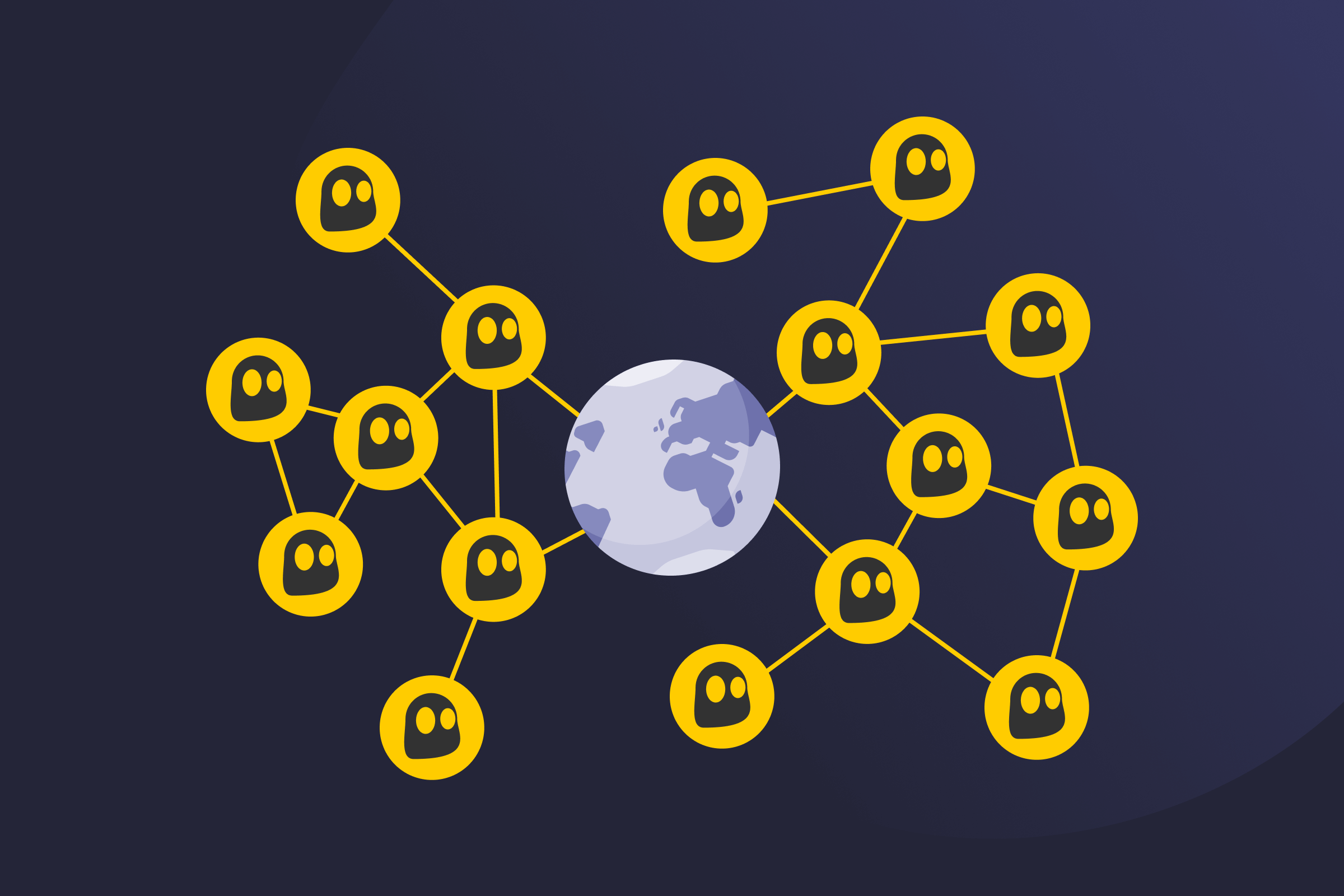Distributed Network

Distributed Network Definition
A distributed network is a type of network where data, computing tasks, and resources are spread across multiple connected devices (nodes), instead of being handled by one central server. Each node can work independently while still cooperating with the rest of the network. This improves reliability, scalability, and performance.
How Distributed Networks Work
Distributed networks run on multiple interconnected nodes that follow the same communication rules, called a protocol. These nodes can be servers, computers, IoT devices, or even virtual machines. They don’t need to be in the same location and often operate across cities or countries.
Instead of sending everything through a single central server, nodes communicate directly with each other to share data and split up tasks. Important information is often stored on multiple nodes at the same time, so if one node goes offline, others can still provide access. To keep everything in sync, nodes regularly exchange updates so they all work with the same version of the data.
Examples of Distributed Networks
- Internet: A massive global distributed network made up of billions of connected devices without a central control point.
- Content delivery networks (CDNs): Services like Amazon CloudFront or Cloudflare store web data on servers around the world to improve speed and reliability.
- Cloud computing platforms: Providers like AWS and Google Cloud operate very large cloud computing networks with resources distributed across data centers.
- Torrenting (P2P file sharing): Peers connected in a torrenting swarm distribute pieces of data among themselves.
- Blockchain networks: Cryptocurrencies like Bitcoin and Ethereum store transaction ledgers across thousands of independent nodes.
- Tor: Volunteer-run nodes pass encrypted traffic between users and the internet.
- VPNs: VPNs operate on servers in data centers distributed around the world. Some VPNs are peer-to-peer, which means the users’ devices act like VPN servers.
Benefits of a Distributed Network
- High fault tolerance: The network remains functional even if some nodes fail.
- Built-in scalability: New nodes can be added easily as the network demands grow.
- Improved efficiency: Tasks can be processed in parallel across many devices.
- Better availability: Data usually remains accessible even during outages.
- Faster access: Users can connect to nearby nodes instead of distant central servers.
Drawbacks of a Distributed Network
- Complex setup and management: Monitoring, troubleshooting, and updates are more difficult as every node has to be configured to coordinate with the others.
- Larger attack surface: More nodes create more potential targets for cybercriminals.
- Possible latency: Data often needs to travel through multiple nodes, which might add lag.
- Data inconsistency: Keeping all copies of data perfectly synchronized can be difficult.
- Privacy concerns: Malicious users can compromise the network’s privacy in systems like P2P or Tor.
Read More
FAQ
A centralized network relies on a main server (or group of servers) to manage data and activity. If that central point fails, the whole network can stop working. A distributed network spreads data and tasks across many independent nodes, so the network can keep running even if some nodes fail. Centralized networks are easier to manage, while distributed networks offer better fault tolerance and scalability.
Though the terms are sometimes used simultaneously, they’re not the same. A distributed network splits data and workload across multiple nodes. A decentralized network is a type of distributed network that doesn’t have a central authority controlling it. All decentralized networks are distributed, but not all distributed networks are decentralized.
Yes, the internet is the largest example of a distributed network. Its physical components, such as cables, routers, and servers, are distributed globally. The data and processes executed over the internet are similarly distributed across a large number of different locations.
Comparing distributed and centralized networks depends on the specific case. Distributed networks have higher scalability and fault tolerance than centralized networks because they don’t have one central hub. However, they’re also more complex to maintain than centralized networks, and the performance can vary from node to node.

 45-Day Money-Back Guarantee
45-Day Money-Back Guarantee